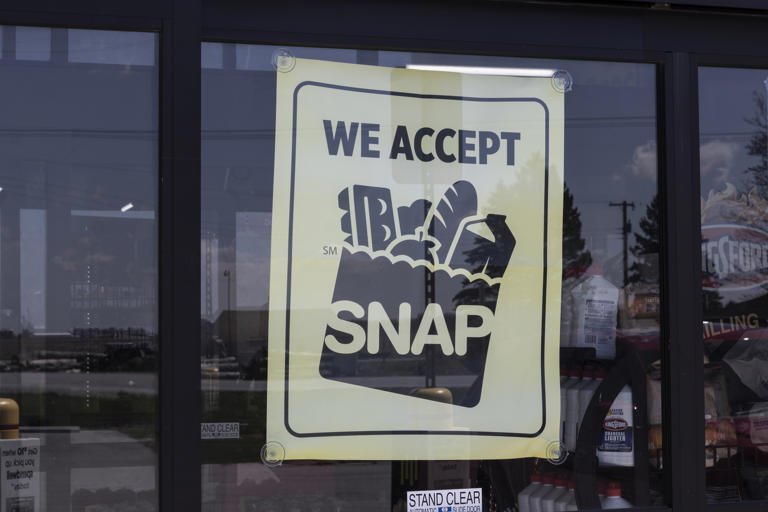How SNAP benefits will change in proposed new tax bill: What to know
Substantive text by Aliss Higham via Newsweek - May 14, 2025
House Republicans have introduced a sweeping budget reconciliation bill that proposes major changes to the Supplemental Nutrition Assistance Program (SNAP) as part of a broader effort to make permanent the administration’s proposed tax cuts.
The legislation, unveiled May 13 by the GOP, would scale back federal spending on food and health-care assistance while preserving $4.6 trillion in tax relief.
Why It Matters
SNAP benefits are paid to low and no-income households across the U.S. that would otherwise struggle to afford groceries. Last year, the program reached some 41 million Americans.
The legislation, part of a wider reconciliation bill put forward by the GOP, seeks to cut $300 billion from Medicaid and SNAP over the next decade - well over the $230 billion in spending cuts originally ordered to be cut by the House Agriculture Committee, which oversees the program.
Key reforms include expanding SNAP work requirements and tightening eligibility criteria, which experts say would make it harder for older adults and low-income workers to qualify or stay enrolled. The bill is part of a broader Republican strategy to control federal deficits without touching defense spending or introducing tax reductions.
What to Know
The House bill would extend the tax cuts signed into law during President Donald Trump's first term in 2017, due to expire in 2025. To offset the cost, Republicans included a suite of cuts to entitlement programs.
Among the changes are:
Work requirements for "able-bodied adults without dependents" would be expanded to cover those up to age 64, up from the current cap of 49.
Exemptions for individuals facing barriers to employment would be narrowed, and states would be given fewer waivers to bypass federal rules.
Administrative requirements would increase, including more stringent identity and income documentation, potentially causing eligible recipients to lose benefits due to paperwork delays.
Limiting future updates to the Thrifty Food Plan, the formula that calculates SNAP amounts.
Reducing the tolerance level for erroneous payments from $37 to $0.
Forcing states to pay for more of SNAP administrative costs. Currently, benefit payments are funding by the U.S. Department of Agriculture (USDA), and administrative costs are shared by federal and state governments.
Supporters have argued the plan encourages work and reduces long-term dependency on food benefits, while critics have warned it risks pushing millions into deeper poverty and would further strain already-vulnerable households.
Bread for the World today outlined their call for justice (below) in advance of their 50th Anniversary Advocacy Summit in June:
We will not stand by while life-saving food assistance is gutted.
We will not accept a tax credit that leaves millions of children behind.
We want a SNAP program that protects people from hunger—not one that punishes poverty.
We want to see a Child Tax Credit that centers low-income families—not one that excludes or overlooks those who need it most.
Budgets are moral documents – they should reflect compassion for our most vulnerable
Act today! Use Bread’s Call Form released today.

